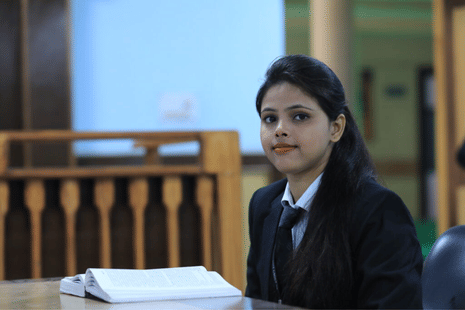Here are some Practice Questions with Answers for CLAT 2025 November 20. These questions are designed to improve your preparation. CLAT 2025 is to be held on December 1, 2024.
 CLAT November 20 Daily Practice Questions with Answers
CLAT November 20 Daily Practice Questions with AnswersCLAT 2025 November 20 Daily Practice Questions with Answers: For the CLAT 2024 exam, the candidates should take these daily practice questions with answers for November 20. Topics covered the English language and current affairs, including general knowledge, quantitative techniques, and legal and logical reasoning. This sample practice will effectively help improve your time management, analytical thinking, and reading skills. Consistently working and analyzing the questions can boost their preparation for the upcoming exams.
Also Read | CLAT November 19 Daily Practice Questions with Answers
CLAT 2025 November 20 Daily Practice Questions with Answers: English Language
Candidates can check out the CLAT 2025 November 20 Daily Practice Questions with Answers from the English Language section:
Read the following passage and answer the questions
Passage: ‘So pick a bird,’ Iff commanded. ‘Any bird.’ This was puzzling. ‘The only bird around here is a wooden peacock,’ Haroun pointed out, reasonably enough. Iff gave a snort of disgust. ‘A person may choose what he cannot see,’ he said, as if explaining something very obvious to a very foolish individual. ‘A person may mention a bird’s name even if the creature is not present and correct: crow, quail, hummingbird, bulbul, mynah, parrot, kite. A person may even select a flying creature of his own invention, for example winged horse, flying turtle, airborne whale, space serpent or aeromouse. To give a thing a name, a label, a handle; to rescue it from anonymity, to pluck it out of the Place of Namelessness, in short to identify it — well, that’s a way of bringing the said thing into being. Or, in this case, the said bird or Imaginary Flying Organism.’
‘That may be true where you come from,’ Haroun argued. ‘But in these parts, stricter rules apply.’
‘In these parts,’ rejoined blue-bearded Iff, ‘I am having time wasted by someone who will not trust what he can’t see. How much have you seen, eh? Africa, have you seen it? No? Then is it truly there? And submarines? Huh? Also, hailstones, baseballs, pagodas? Goldmines? Kangaroos, Mount Fujiyama, the North Pole? And in the past, did it happen? And the future, will it come? Believe in your own eyes and you’ll get into a lot of trouble, hot water, a mess.’ With that, he plunged his hand into a pocket of his auberginey pajamas, and when he brought it forth again it was bunched into a fist. ‘So take a look, or I should say a gander, at the enclosed.’ He opened his hand, and Haroun’s eyes almost fell out of his head. Tiny birds were walking about on Iff’s palm; pecking at it, and flapping their miniature wings to hover just above it. And as well as birds there were fabulous winged creatures out of legends: an Assyrian lion with the head of a bearded man and a pair of large hairy wings growing out of its flanks; and winged monkeys, flying saucers, tiny angels, levitating (and apparently air-breathing) fish. ‘What’s your pleasure, select, choose,’ Iff urged. And although it seemed obvious to Haroun that these magical creatures were so small that they couldn’t possibly have carried so much as a bitten-off fingernail, he decided not to argue and pointed at a tiny crested bird that was giving him a sidelong look through one highly intelligent eye.
Question 1: If Iff is right, which of the following statements is true?
(A) You should only trust what you cannot see
(B) Naming something is the only way to make it unreal
(C) You should only trust what you can see
(D) Naming something is one way to make it real
Answer: (D)
Question 2: Which of the following most accurately describes what the underlined sentence means in the context of the passage?
(A) Do not restrict your knowledge only to what you can physically see
(B) Accept everything you see uncritically
(C) Trusting your senses is a recipe for success
(D) Learn not to appreciate viewpoints other than your own
Answer: (A)
Question 3: All the words below are related in meaning, except:
(A) Levitate
(B) Fly
(C) Hover
(D) Gander
Answer: (D)
Question 4: What does ‘fabulous’ mean in the passage?
(A) Very good
(B) Unbelievable
(C) Mythical
(D) Enormous
Answer: (C)
Question 5: Which of the following applies to Iff?
(A) He speaks in contradictions
(B) He has a habit of speaking in synonyms
(C) He uses proverbs to express ideas
(D) He uses metaphors to describe things
Answer: (D)


 Follow us
Follow us













